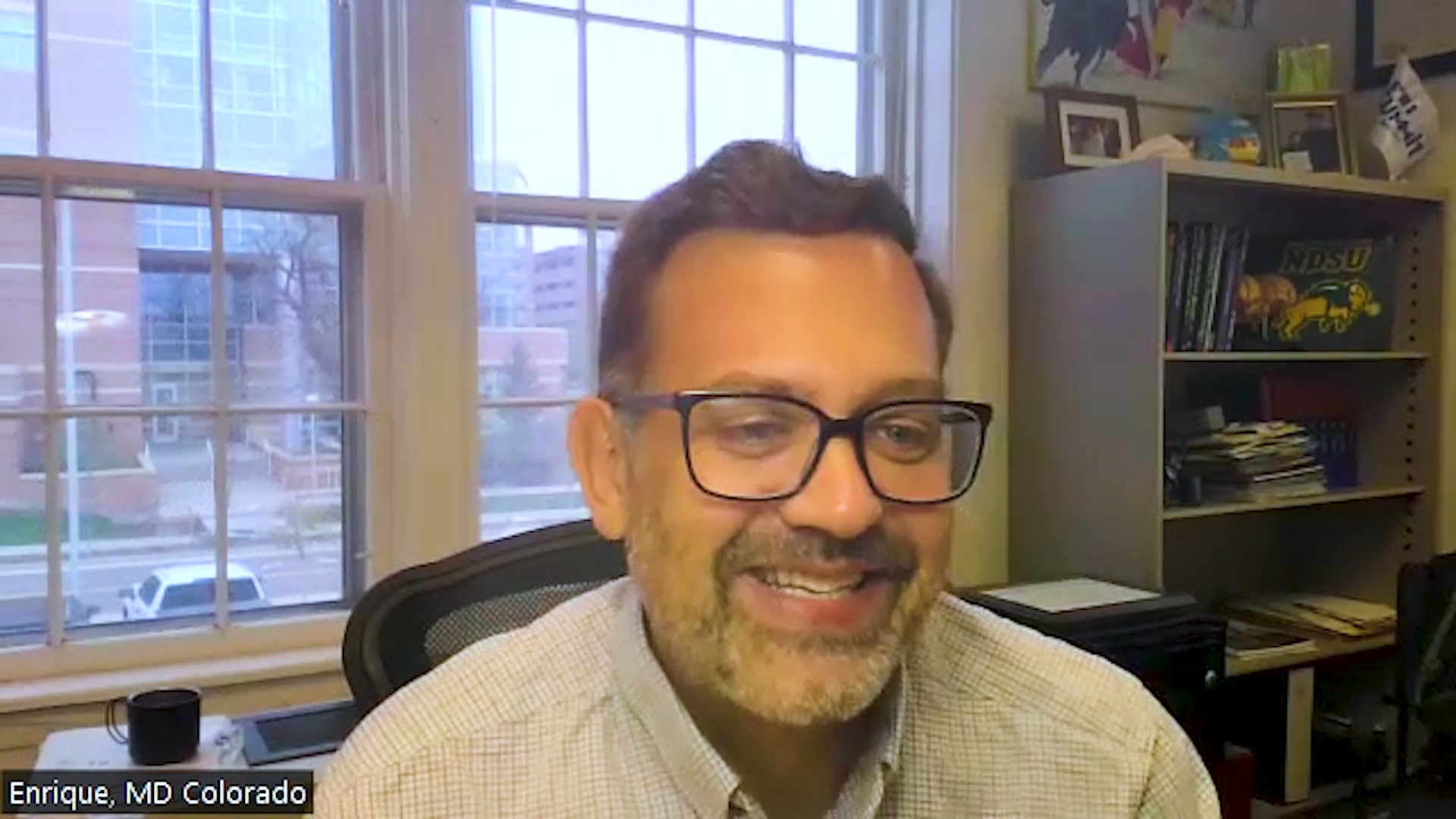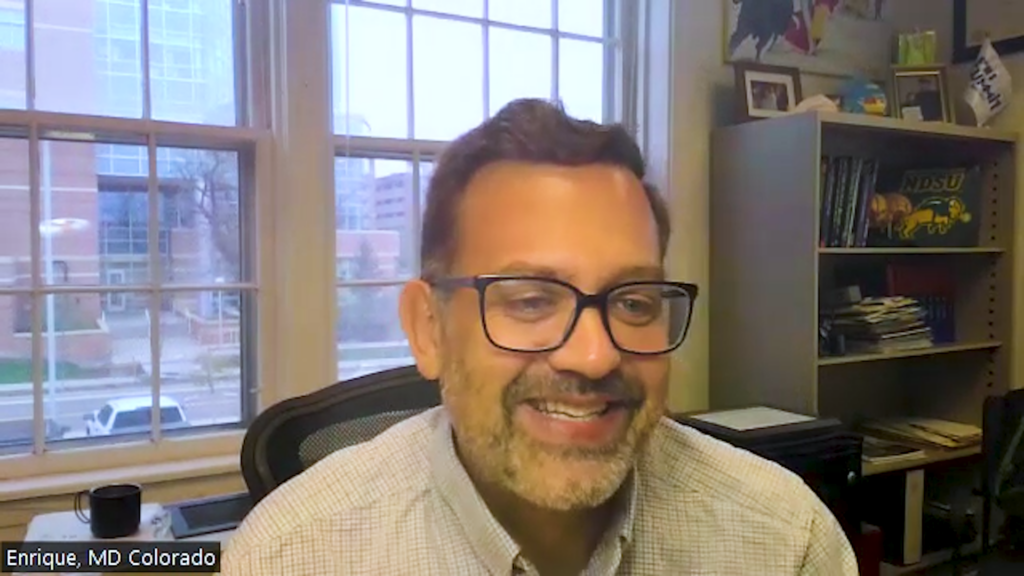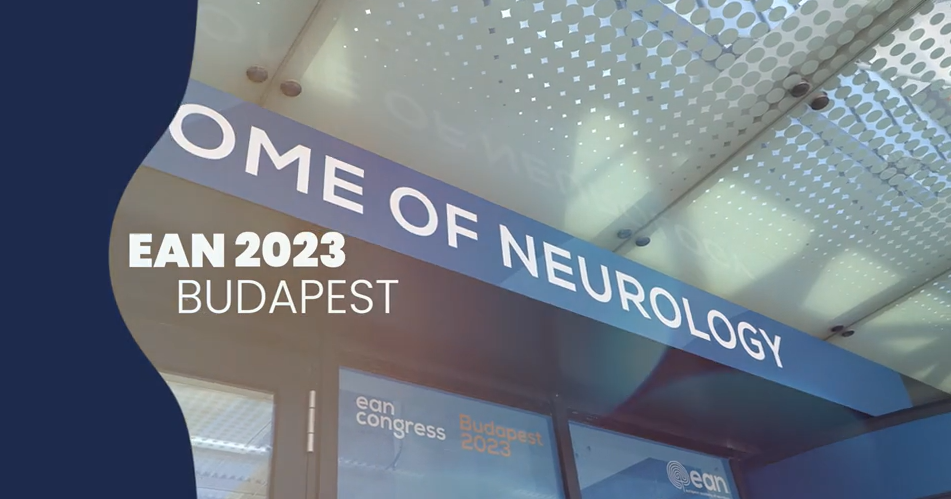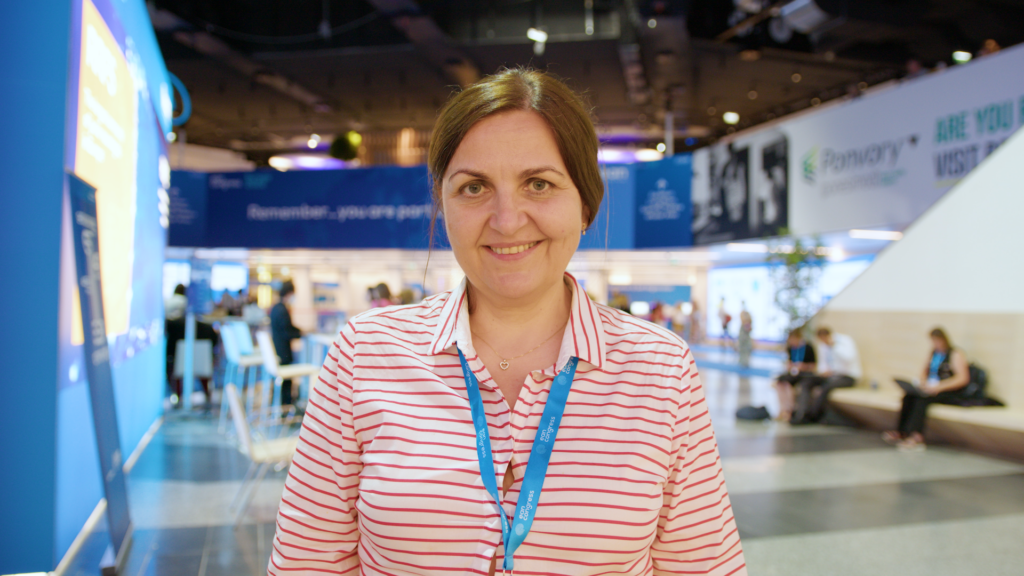Oral diroximel fumarate (DRF) has similar efficacy/safety to dimethyl fumarate in relapsing-remitting multiple sclerosis (RRMS), but improved GI tolerability. In the from EVOLVE-MS-1 study, safety/efficacy of DRF was assessed in patients with RRMS aged >=55 years. Dr Simon Faissner (Ruhr-University Bochum, Germany) summarizes the take-home messages from his presentation of the results of the study.
The abstract ‘EPO-160 Safety and Efficacy of Diroximel Fumarate in Older Patients with Multiple Sclerosis from the Phase 3 EVOLVE-MS-1 Study’ was presented at the annual European Academy of Neurology (EAN), July 1–4, 2023
Questions
- Please summarize the current treatment options for MS in patients aged over 55 (00:13)
- What were the aims and rationale of the EVOLVE-MS-1 study? (00:47)
- What was the trial design and methodology? (01:30)
- Please summarize the results and key findings (01:58)
- What conclusions can be drawn, and how might this impact future clinical practice? (04:04)
Disclosures:Simon Faissner is a consultant for Biogen, BMS, Celgene, Genesis Pharma, Janssen, Merck, Novartis and Roche. He has received grant/research support from Ruhr-University Bochum, DMSG, Stiftung für therapeutische Forschung, Lead Discovery Center GmbH and Novartis. He has received honoraria/honorarium from Biogen, BMS, Celgene, Genesis Pharma, Janssen, Merck, Novartis and Roche.
Support: Interview and filming was supported by Touch Medical Media. The interview was conducted by Sophie Nickelson.
Filmed as highlight of EAN 2023.
Transcript
My name is Simon Faissner. I’m a Consultant Neurologist and Professor for translational neuroimmunology at Ruhr-University Bochum in Germany.
Q1: Please summarize the current treatment options for multiple sclerosis in patients aged over 55 (00:13)
So for the moment, we have roughly 20 medications licensed for the treatment of patients with multiple sclerosis. And the interesting point is that most of those medications have been evaluated in patients under the age of 55. And in the EVOLVE-MS-1 trial, we have also patients included until the age of 65, which is basically an interesting option to assess the efficacy and also safety in older patients with MS.
Q2: What were the aims and rationale of the EVOLVE-MS-1 study? (00:47)
The EVOLVE-MS-1 study was an open-label study conducted in patients with relapsing-remitting MS until the age of 65, which was conducted over roughly 96 weeks. And the interesting point is basically in the trial design that we have included patients who were also switching or rolling over from the EVOLVE-MS-2 study, which evaluated the efficacy of diroximel fumarate in comparison to dimethyl fumarate. And in the EVOLVE-MS-1 study, it was basically about the efficacy and safety of diroximel fumarate, the second generation fumarate, in MS patients.
Q3: What was the trial design and methodology? (01:30)
So the EVOLVE-MS-1 study was an open-label study, which evaluated the safety, tolerability and efficacy of diroximel fumarate over 96 weeks in adult patients with relapsing-remitting MS. And, during this period of time, the clinical endpoints were basically assessed and also safety-wise, regarding safety in the patients.
Q4: Please summarize the results and key findings (01:58)
The data and the work which has been published and which has been shown here at the European Academy of Neurology is about safety and efficacy of diroximel fumarate in older patients with MS from the EVOLVE-MS-3 trial, so basically in patients above the age of 55 to 65 compared to younger patients. Let’s first start with inflammatory disease activity, so the annualized relapse rate in older patients was a little bit lower at the baseline of the study, which was significantly reduced after two years of treatment to an annualized relapse rate of 0.07. The reduction was similar to the reduction in younger patients. This was also mirrored in good effects regarding gadolinium enhancing lesions. So from baseline to week 96, we had roughly 50% reduction in older patients compared to 66% reduction in younger patients, which was basically expected because we know that in older patients, we do not see a lot of inflammatory disease activity any longer. Regarding the proportion of patients with no evidence of disease activity-3, so NEDA-3 status, this status was a little bit higher, descriptively in older patients compared to younger patients. The safety analysis in older patients showed basically no difference compared to younger patients. So, any adverse event was quite similar, and also gastrointestinal side effects were similar with roughly 32% to 33% respectively in both groups. An important issue is basically to assess the absolute lymphocyte counts, which dropped as expected until week 48, both in elder and also younger patients and which remained stable from this timepoint on.
Q5: What conclusions can be drawn, and how might this impact future clinical practice? (04:04)
So basically, we can conclude from this analysis of the EVOLVE-MS-1 trial that the treatment with diroximel fumarate is also effective and safe in older patients compared to younger ones. I think we still need more real-world evidence to assess, especially long-term efficacy and also long-term safety, in this patient population, but it’s basically a step ahead because we now have evidence from a phase 3 trial of an immunomodulatory treatment in MS patients above the age of 55.












